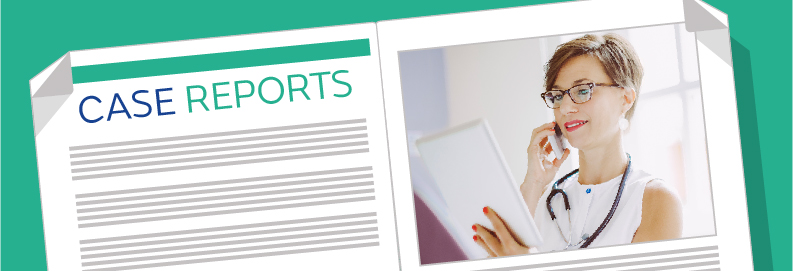Redaction and anonymisation - doing your bit for data protection
New data protection regulations came into force on 25 May and MPS is committed to fulfilling its legal obligations – correct redaction and anonymisation is one way that you can play your part in safeguarding data.
Read moreArticle contains
Tagged in...
The General Data Protection Regulation (GDPR)
From 25 May 2018, the EU General Data Protection Regulation (GDPR) (1) will come into force and will have a direct effect in every EU country.
Read moreArticle contains
Failure to act on cauda equina
Mr X, a 25-year-old fit and active man, was reviewed by his GP, Dr A, with a recurrence of lower back pain. He had noticed lumbar back pain intermittently throughout his 20s, but played a lot of sports to which he attributed his symptoms.
Read moreArticle contains
Tagged in...
Failure to monitor renal impairment
Article contains
Tagged in...
Sciatic nerve injury but no negligence
Article contains
Tagged in...
Strong record-keeping – strong defence
Ms Q, 58 years old, consulted Dr G, a gastroenterologist, with a history of dyspepsia, early satiety and altered bowel habit. Clinical examination, including digital rectal examination, was recorded as normal...
Read moreArticle contains
Tagged in...
The importance of living wills
Patient B, a 70-year-old female, with a history of dementia, stroke and pneumonia, was admitted to the emergency room of a private hospital in a coma. She had advanced lung cancer and was well-known to the physician, Dr Y, who was called to see her.
Read moreArticle contains
Tagged in...
HIV diagnosis
A female patient at a medical centre consulted GP Dr F and was subsequently sent for further treatment at another department within the building.
Read moreArticle contains
Tagged in...
Failure to diagnose pre-eclampsia
Article contains
Poor notes, fatal consequences
Mrs Y, a 39-year-old chef, opted to M see consultant obstetrician Mr B for private antenatal care. It was her first pregnancy and other than a BMI of 30 she had no pre-existing medical problems.
Read moreArticle contains
Tagged in...
Caught by consent
A private neurosurgeon faces questions on consent, following a lumbar microdiscectomy sciatica and back pain
Read moreArticle contains
Tagged in...
Wrong drug, no negligence
Mrs M was a 64-year-old care assistant in a retirement home. She visited her GP with a two-month history of blood in her stools, altered bowel habit, and intermittent lower abdominal discomfort.
Read moreArticle contains
Tagged in...
An essential guide to medical records
This Essential Guide was produced as a resource for Medical Protection members in the UK. It is intended as general guidance only.
Read moreArticle contains
GP entry study guide
General Practice remains one of the most popular of all the specialties, with about a quarter of all candidates ranking it as their top choice, and more than half likely to apply for it as one of their choices for specialty training.
Read moreArticle contains
Avoiding easy mistakes: Five medicolegal hazards for junior doctors
Why are medicolegal issues important?
Read moreArticle contains
The healing power of saying “sorry” in healthcare
If I accidentally bump into someone and hurt them walking along the street, my immediate reaction is to say sorry, regardless of whether it was or wasn’t my fault. What happens when we place a similar analogy into a doctor/patient context?
Read moreArticle contains
Tagged in...
'Dr Google' in the patient chair
There is no escaping the fact that ‘Dr Google’ is becoming more and more influential in GP consultations. At Medical Protection, we commissioned a YouGov online survey of 2021 British adults to look at the pros and cons of seeking medical advice from the internet.
Read moreArticle contains
Tagged in...
Medical records - Northern Ireland
Good medical records – whether electronic or handwritten – are essential for the continuity of care of your patients. Adequate medical records enable you or somebody else to reconstruct the essential parts of each patient contact without reference to memory. They should therefore be comprehensive enough to allow a colleague to carry on where you left off.
Read moreArticle contains
Tagged in...
Medical records - Scotland
Good medical records – whether electronic or handwritten – are essential for the continuity of care of your patients. Adequate medical records enable you or somebody else to reconstruct the essential parts of each patient contact without reference to memory. They should therefore be comprehensive enough to allow a colleague to carry on where you left off.
Read moreArticle contains
Tagged in...
Cumulative errors
Mrs G, 34, presented to the delivery suite at 12pm, 38 weeks into her first pregnancy. Her antenatal care had been uneventful apart from measuring slightly “large for dates”. She was found to have a longitudinal lie with a cephalic presentation, and was experiencing three contractions every ten minutes. The midwife examined her and found her to be 2cm dilated with a fully effaced cervix and “intact membranes”.
Read moreArticle contains
Needlestick injuries - Scotland
Needlestick injuries can be classified as any piercing wound caused by a hypodermic needle, or by other sharp instruments or objects such as scalpels, mounted needles, broken glassware, etc. This factsheet sets out the main concerns for healthcare professionals and what to do when needlestick injuries happen.
Read moreArticle contains
A malignant lesion
Mr M, a 44-year-old architect, attended his GP, Dr C, for a skin check. Dr C diagnosed a papilloma on his right chest wall as well as a seborrhoeic keratosis skin lesion of the upper left arm.
Read moreArticle contains
Tagged in...
Report writing - Wales
An important starting point is your written report on the circumstances of the incident. This factsheet gives more information about writing this report.
Read more







